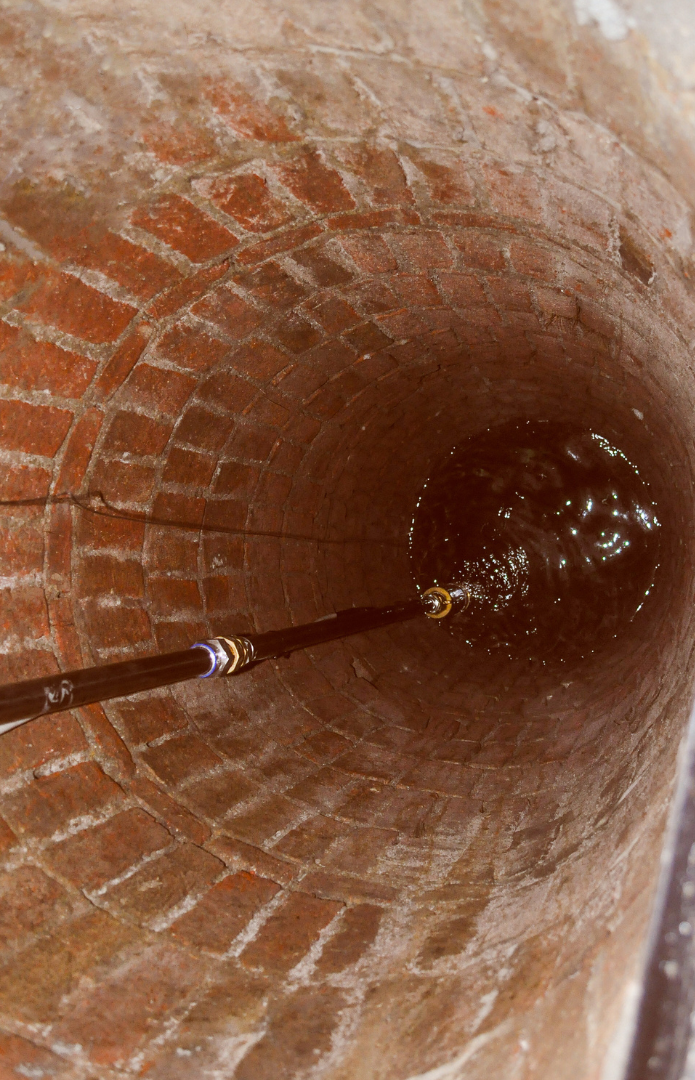Catawba Riverkeeper
Well Testing
Why is well testing needed?
Flooding and excessive rains, like that experienced from Hurricane Helene in many places throughout our river basin, caused thousands of private wells to become damaged and potentially contaminated. Unlike municipal systems, each homeowner is responsible for the maintenance and testing of their wells. If contaminated water is consumed or comes into contact with skin, it can cause illness. The only way to know if your water is contaminated is to get it tested.
To help community members throughout the region stay safe, Catawba Riverkeeper is partnering with the NC Department of Health and Human Services (DHHS), universities, and other Waterkeepers to offer free disinfection and bacterial test kits for owners of private wells and springs of that were impacted by Hurricane Helene.
It is important to follow recommendations listed below to ensure the assessment and testing of your well or spring is completed properly.
Has your well or spring flooded?
If your well has flooded, follow safe water precautions to prevent illness caused by potentially contaminated water:
- Do not drink water from your well or spring. Do not use contaminated well or spring water. You cannot see, taste, or smell bacterial contamination in your well or spring. Use only bottled, boiled, or treated water for drinking, cooking, and personal hygiene until you are able to properly disinfect and test your water.
- Inspect the well seal and casing for damage as floodwaters can cause cracks or other issues that allow contaminants to enter. If there is damage to your well or spring, contact a licensed well contractor for assistance. Find a North Carolina certified well contractor here, or contact Bryan Colvard at 336-528-0409 or bryan.colvard@dhhs.nc.gov.
- Avoid turning on your pump until you are sure the electrical system and well components are dry and functioning properly.
- Properly disinfect your well or spring before testing. Click here for Disinfecting Instructions from NCDHHS. If you already have materials needed for disinfection, you can begin disinfecting and sampling now. Disinfection must be done properly in order for testing to be effective. If you do not have the materials needed, you can pick up a well disinfection kit at select local County Health Departments.
- Test your well or spring for contaminants. Do NOT drink your well water until it has been tested. You must use official water testing kits in order for the sample to be tested properly. You can pick up a bacterial test kit at select local County Health Departments.

Request a Disinfection or Test Kit
Free disinfection kits and test kits will be available at select NC county health departments beginning October 22nd.
Participating county health departments include:
- AppHealthCare – Alleghany location: 157 Health Services Road, Sparta, NC 28675
- AppHealthCare – Ashe Environmental Health Building: 626 Ashe Central School Road, Jefferson, NC 28640
- AppHealthCare – Watauga location: 126 Poplar Grove Connector, Boone, NC 28607
- Burke County Health Department: 700 E. Parker Road, Morganton, NC 28655
- Buncombe County Health Department – Environmental Health Building: 30 Valley St., Asheville, NC 28801
- Caldwell County Health Department: 2345 Morganton Blvd., Lenoir, NC, 28645
- Cherokee County Health Department: 228 Hilton St., Murphy, NC 28906
- Haywood County Environmental Health: 157 Paragon Parkway, Suite 200, Clyde, NC 28721
- Henderson County Health Department: 1200 Spartanburg Highway, Suite 100, Hendersonville NC 28792
- Madison – Environmental Health Building: 5707 US-25, Marshall, NC 28753
- McDowell County Health Department - 408 Spaulding Road, Marion, NC 28752
- Toe River Health District – Mitchell location: 130 Forest Service Drive, Bakersville, NC 28705
- Toe River Health District – Avery location: 545 Schultz Circle, Newland, NC 28657
- Yancey County Health Department: 202 Medical Campus Drive, Burnsville, NC 28714
Full instructions on use will be given when kits are picked up in person. If you are unable to go and pick your materials, please contact your county health department or your local Riverkeeper. Catawba Riverkeeper Brandon Jones can be reached by email at brandon@catawbariverkeeper.org or by phone at (704) 679-9494ext. 102.
Private well owners who live in an impacted area not listed above should
contact their local health department for well disinfection and testing assistance.





